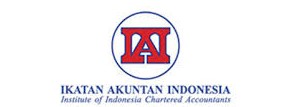Pengaruh Jalur Pelaporan Dan Retaliasi Terhadap Niat Seseorang Melakukan Whistleblowing
(Studi Eksperimen pada Pegawai Badan Keuangan Daerah Provinsi Sumatera Barat)
Abstract
This study aims to examine the effect of reporting pathways and retaliation on someone's intention to do whistleblowing. The population in this study is the Employees of the Regional Finance Agency of West Sumatra Province. The first hypothesis of this study is that individuals who deal with anonymous reporting channels will be more likely to show whistleblowing than individuals who face non-anonymous reporting pathways and the second hypothesis is individuals who face low retaliation potential will be more likely to show intention to do whistleblowing than individuals who face high retaliation potential. Experimental research with a 2 x 2 factorial design was conducted. 80 employees of the West Sumatra province's financial services have contributed to the experiment. One Way ANOVA is used in hypothesis testing. The results showed that the reporting path did not significantly influence the intention to conduct whistleblowing with the significance value from the One Way ANOVA analysis test of 0.29> 0.05. Retaliation has no significant effect on whistleblowing intentions, with the significance value of the One Way ANOVA analysis test being 0.73> 0.05.







.png)
.png)
